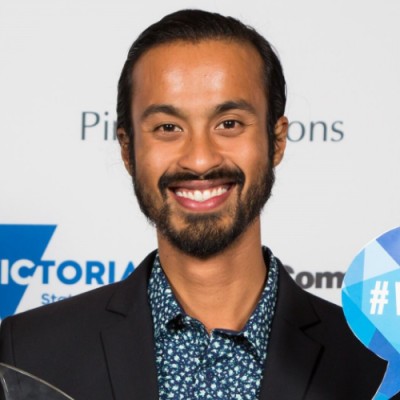ALTA Member Profile – Noel Lim – Anika Legal
This month our ALTA Interns chat with ALTA Member, Noel Lim, CEO of Anika Legal.
Tell us a bit about your background.
After High School I was not sure what I wanted to be. I was really keen to study Arts, and when I found out I could do Law as well, I thought, let’s just try it. In my second year, I landed a job as a receptionist and legal secretary in a small firm. Within a couple months, I knew that I did not want to be a lawyer but no one wants half a law degree, so I finished it. I actually spent most of my university years working at an education technology company. It was a young company – not quite a start-up but still ran a bit like a start-up. I ended up being more engaged in that and soon moved to an operations role within that company, managing national operations while I was still at university.
Towards the end of my degree, I did not know what I wanted to do. I spent some time travelling and came to a few realisations about my career. I saw this graph of money against happiness and saw that it plateaued quite sharply. Interestingly you did not have to make that much money before you stopped seeing the returns of happiness. I was really only interested in one thing – happiness. Lots of people say “follow your passion” and the research shows that peoples’ passions change every seven years or so. That’s not a long time – especially if you end up studying for five of those years. What I realised was that people found helping others rewarding and that’s something I knew I would still enjoy into the future. So, I created a career plan around how I would have social impact.
Do you remember the moment your journey with legal technology began?
Where it started, I did not realise it was going to be a career. However, when I came back from a trip, a friend reached out to me about a legal hackathon at Monash which was a good time to catch up with some uni friends. During the hackathon, the six of us came up with the idea for Anika Legal. We realised there was a huge problem of access to justice, and there are hundreds of thousands of Australians each year who are not protected by their justice systems. It may be because they cannot afford a lawyer or they don’t have the ability to get advice. Another problem is that many law students are desperate for practical legal training, but there is a lack of opportunities. Our solution was therefore simple – to provide legal assistance to people who needed it by connecting them to law students who wanted to help, and universities were keen to fund training for their students under the supervision of a lawyer. We pitched the idea on the Sunday night and won. We proceeded to the next round, submitted a video and made it through to the finals. Very excitedly we were then off to New York to pitch in the finals gala and placed runners up in the world final! From there, we had a lot of people saying that our idea has legs and asked us if we considered making it a reality. That was the moment – realising it was more than just a fun competition. We took the plunge and started Anika. That was my introduction to legal technology. It was like a baptism of fire – but also like a happy accident.
Describe a typical day in your life.
That has got to be the hardest question to answer. Being the CEO of a relatively young organisation looks quite different. We have four employees and about sixty volunteers. That means that my day-to-day is different almost every day. In terms of what I am doing, as CEO, I focus on the strategic planning, manage the executive team, and work on key partnerships. However, I also spend a similar portion of time leaning into various function, such as our impact framework or providing my perspective on the ops-related or advocacy-related. For these reasons, it is extremely hard to describe a typical day as there is no typical day.
Entrepreneurship can be rewarding and challenging in equal measure. From your time building Anika Legal with your team, what do you believe are the important skills for a legal tech founder’s success?
Equal parts rewarding and challenging is right and it’s 10/10 for both of those. It was extremely hard at the time, when you are on the verge of being completely overwhelmed and stressed out. But equally, the best time of my life, I get up every day looking forward to work.
I think the most important skills are to know yourself. To get the rewards, you need to do this for the right reasons. Founding a start-up is one of the hardest things you can do. If you are doing it for the wrong reasons, it will be really challenging but it will not be really rewarding. For me, I mentioned earlier that what I wanted to do was to help people. Anika is really doing that! Our vision is a world where everyone can access justice and there is help for vulnerable people to get justice from their justice system. That resonates with me, and I am always willing to spend time and energy doing that.
Determination is the second most important skills. Even though it is rewarding, you will still need to get through the really challenging parts. There will be nights where you are stressed out or disappointed, lying awake in bed because you are wondering how everything is going to work out. That is just part of it. Even if you are doing it for the right reasons, there is no substitute for going through with the hard stuff, even when it feels really tough.
Those are the two skills. Although they are quite general, they are foundational.
Founding a legal tech company is full of uncertainties and we can then throw COVID into the mix. If you could go back in time to give yourself one piece of advice at a time of uncertainty what would you say to your younger self?
There is always a lot of uncertainty in the journey, from my experience anyway. I think the piece of advice I would give myself is to accept what happens. It is easier said than done, but I found that how I feel does not correlate with what the circumstances are. For example, something might happen, which is a little like a road bump. I think it is human nature to plunge into disappointment and despair. And other times might be slightly good, and you’d be overjoyed and euphoric. You probably shouldn’t be that high or that low. You can be proportionately upset and happy about things that happen. However, managing your own psychology is the most challenging part when it is such a rollercoaster ride. My advice is accepting the general trend rather than focusing on the peaks and troughs.
What are the reasons you think that you chose to go down a non-traditional pathway for law students into a LegalTech start-up than commercial law?
In law school, if you don’t get clerkships, it is not the end of the world!
I did not want to be a lawyer at all, and I didn’t even know if I wanted to work in the law. I was considering Management Consulting and some other things. However, the opportunity just presented itself. It was a coincidence I went to the Global Legal Hackathon, and I think I have always gravitated towards the problems I wanted to solve and how to solve them. In the social sector, technology is heavily underutilised. So, there is a lot of low hanging fruit down there if you embrace technology. Tech was probably going to be part of my career because it is an effective tool to solve problems I cared about. However, for the legal part I was just lucky because I had the background. I realised I could use tech skills to improve peoples’ lives in the legal system.
Australia is a ‘relatively small market when compared to the rest of the world. Where do overseas markets sit on the priority list – and what are your thoughts on growing a business globally out of Australia?
The concept of Anika is a service as business model, where there are law students providing free legal services to people who would otherwise not get it, and universities paying for it as a business. Three problems are being solved here – for clients, students and universities. These three problems exist worldwide, and the concept of Anika is thus globally scalable. We have been running for about three years now, and we can see how much work there is to be done in Victoria, let alone Australia. We envision a model that works anywhere that would help people access justice. When the time is right to move interstate, nationally or internationally, that will be what we will be about. Right now, it makes the most sense to focus on Victoria but the vision for Anika certainly does not stop within Australia.
What are the three priorities that Anika Legal intends to focus on this year
Firstly, to continue doing what we have established well in previous years. That is that we launch and run legal services to people who would not otherwise get it. We focus on tenancy right now and we aim to keep people in safe homes.
Secondly, to continue working on this service model and figuring out ways to get more universities involved so that we can place students, they can pay for the practical legal education and we can use that money to fund the access to justice. We have great partnerships with Deakin University and RMIT and as we launch more services, we will have more clients and cases, creating more opportunities for universities to place their students, where they can have real-world training experiences that uses technology and exposes them to the barriers of justice.
And finally, I’m beginning to think about advocacy and the contribution we can make. Our service model takes on a lot of clients with similar cases, thus presenting a data collection capability. If there is something we can do to support the sector to further their advocacy discussion, that is what we would like to focus on.
Finally, where can we keep up to date with everything that Anika is up to?
Visit us at www.anikalegal.com and sign up to our mailing list here!
Connect with Anika Legal on Linked In, Facebook
and Twitter
Interview by ALTA Interns Farsai Powthong and Phoebe Yap.




